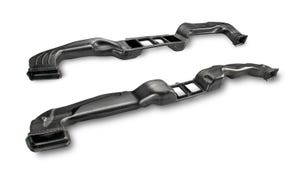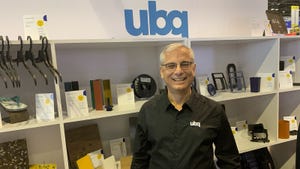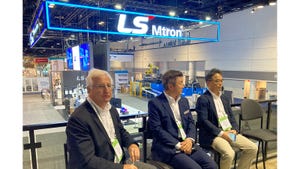Fuel permeation concerns smoldering
November 9, 2006
Crystal City, VA — With design work currently underway for 2007-2008 model-year products, rotomolders remain concerned that their industry is still without an acceptable material to satisfy approaching more-stringent vapor permeation regulations for fuel tanks (see October 2003 MPW for initial report). “We as an industry are pleading for something and not getting anything,” George Kraemer, chairman of the Assn. of Rotational Molding International’s (ARM; Chicago, IL) ad hoc permeation committee, told assembled members during a report at ARM’s fall conference (Crystal City, VA; Nov. 5-7).
The California Air Resources Board (CARB) and the Environmental Protection Agency (EPA) are both working towards stricter regulation of fuel systems, including tanks, in items like lawn and garden equipment, small off-road vehicles, and marine vessels, limiting the amount of gasoline vapors that can seep out over a 24-hour period. In addition, fuel-system suppliers must now consider greater mandated use of ethanol (Minnesota is considering 20% by volume requirement in gas), and that substance’s effects.
The new standard will be 1.5g/sq m/day, with CARB looking for implementation in 2007-2008 for fuel tanks in small off-road engines. Standards for marine tanks, which were due this year from the EPA, could be pushed back to 2012, with suggested standards released for review at the start of 2007. The EPA will address all-terrain vehicles, recreational vehicles, and motorcycles in the 2008-2010 timeframe. Kraemer said the engines, and regulations, will be defined by two classes: more than 10,000 units/yr with integrated tank (items like push mowers) and less than 5000 units/yr, with a separate tank (riding mowers and the like).
Bob Dunne, whose company, Meese Orbitron Dunne (MOD; Ashtabula, OH), has tank business, said permeation-suitable systems over the last two years have taken “two steps forward and one step back.” Is there a solution now?
“That’s the million dollar question,” Dunne admitted, saying there are two primary considerations: performance and system cost. “Both aren’t there yet.” MOD colleague Mike Dorsey, outgoing ARM president, added “You’ve got [material] suppliers that say they’ve got something, but is it practical?” An additional challenge could be disparate standards handed down from the EPA and CARB. “If [OEMs] costs are going to change significantly, and CARB and EPA aren’t on the same page, it is going to be tough to make an adjustment for just one state.”
Two plastics suppliers that feel they have a solution were on hand to present their materials to rotomolders. Former Total division, Arkema, presented its PetroSeal system, which it worked with its one-time parent on, formulating a polyethylene that would join more readily to Arkema’s Rilsan polyamide (PA) 11, used to form a barrier layer. The company says the material combination has already met certain tests and earned a CARB exemption last November. Company representatives at the conference said PetroSeal is already being applied commercially in Europe, with an application in North America slated for 2007. The company is marketing the system for small off-road vehicles and marine applications.
With a 4:1 ratio of PE:PA, PetroSeal is currently a multilayer system, with the thinner Rilsan PA created as a core using a drop-box, although Arkema said it is working on a one-shot processing solution.
Also on hand was specialty rotomolding material compounder Aardvark Polymers (Lambertville, NJ; September 2006 MPW Tech Trends), which launched multiple grades of its Aartel acetal product, which it says will meet the new standards, at the event. Customer trials are underway, and distribution agreements are in place with PolyOne (Cleveland, OH) and ICO Polymers (Houston, TX). In spite of these developments, concerns remain.
“We’ve tried to get the EPA to understand our process and concerns we have,” Kraemer said, “to ensure that they don’t legislate [rotomolding] out of the industry.” —[email protected]
You May Also Like


